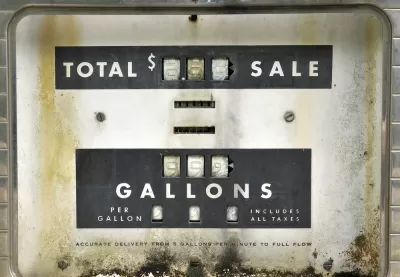The estate tax reduction, plus increasing the retirement income tax exemption, would be traded for an unspecified hike in the gas tax to keep the Transportation Trust Fund solvent. But the $400 million in tax cuts won't satisfy Gov. Chris Christie.

The Garden State's 14.5-cent gas tax (10.5 cent excise tax plus 4.0 cpg Petroleum Products Gross Receipts Tax) is the second lowest in the United States (after Alaska's), having not been raised since 1988, notwithstanding recent attempts to do so.
State Assembly Speaker Vincent Prieto (D-Hudson) crafted the latest 'tax tradeoff' strategy in response to proposals by Gov. Chris Christie that would eliminate the estate tax and raise the retirement income exemption. Christie has previously stated he would only support legislation to raise the gas tax if it was accompanied by tax reductions elsewhere. The tax issue has also prompted a debate about what is considered "tax fairness."
"Prieto said at a Statehouse news conference that he would 'be open' to phasing out or raising the exemption on the estate tax, but only as part of a deal on funding the Transportation Trust Fund, which runs out of money this summer and is largely funded by the gas tax," writes Samantha Marcus of NJ Advance Media for NJ.com.
According to an op-ed published Thursday in NJ.com, "The Transportation Trust Fund (TTF) is $16 billion in debt," write construction industry leaders Robert Briant Jr. and Jack Kocsis Jr.
The solution seems clear: If we can't borrow any more money, we need to increase revenue. Currently, the only solution that can raise enough money to fund the TTF, fix our roads, and begin chipping away at our debt burden is one that includes an increase to the gas tax.
Stay tuned...
FULL STORY: Prieto: No N.J. estate tax cut without transportation funding fix

Study: Maui’s Plan to Convert Vacation Rentals to Long-Term Housing Could Cause Nearly $1 Billion Economic Loss
The plan would reduce visitor accommodation by 25,% resulting in 1,900 jobs lost.

Alabama: Trump Terminates Settlements for Black Communities Harmed By Raw Sewage
Trump deemed the landmark civil rights agreement “illegal DEI and environmental justice policy.”

Why Should We Subsidize Public Transportation?
Many public transit agencies face financial stress due to rising costs, declining fare revenue, and declining subsidies. Transit advocates must provide a strong business case for increasing public transit funding.

Paris Bike Boom Leads to Steep Drop in Air Pollution
The French city’s air quality has improved dramatically in the past 20 years, coinciding with a growth in cycling.

Why Housing Costs More to Build in California Than in Texas
Hard costs like labor and materials combined with ‘soft’ costs such as permitting make building in the San Francisco Bay Area almost three times as costly as in Texas cities.

San Diego County Sees a Rise in Urban Coyotes
San Diego County experiences a rise in urban coyotes, as sightings become prevalent throughout its urban neighbourhoods and surrounding areas.
Urban Design for Planners 1: Software Tools
This six-course series explores essential urban design concepts using open source software and equips planners with the tools they need to participate fully in the urban design process.
Planning for Universal Design
Learn the tools for implementing Universal Design in planning regulations.
Smith Gee Studio
Alamo Area Metropolitan Planning Organization
City of Santa Clarita
Institute for Housing and Urban Development Studies (IHS)
City of Grandview
Harvard GSD Executive Education
Toledo-Lucas County Plan Commissions
Salt Lake City
NYU Wagner Graduate School of Public Service




























